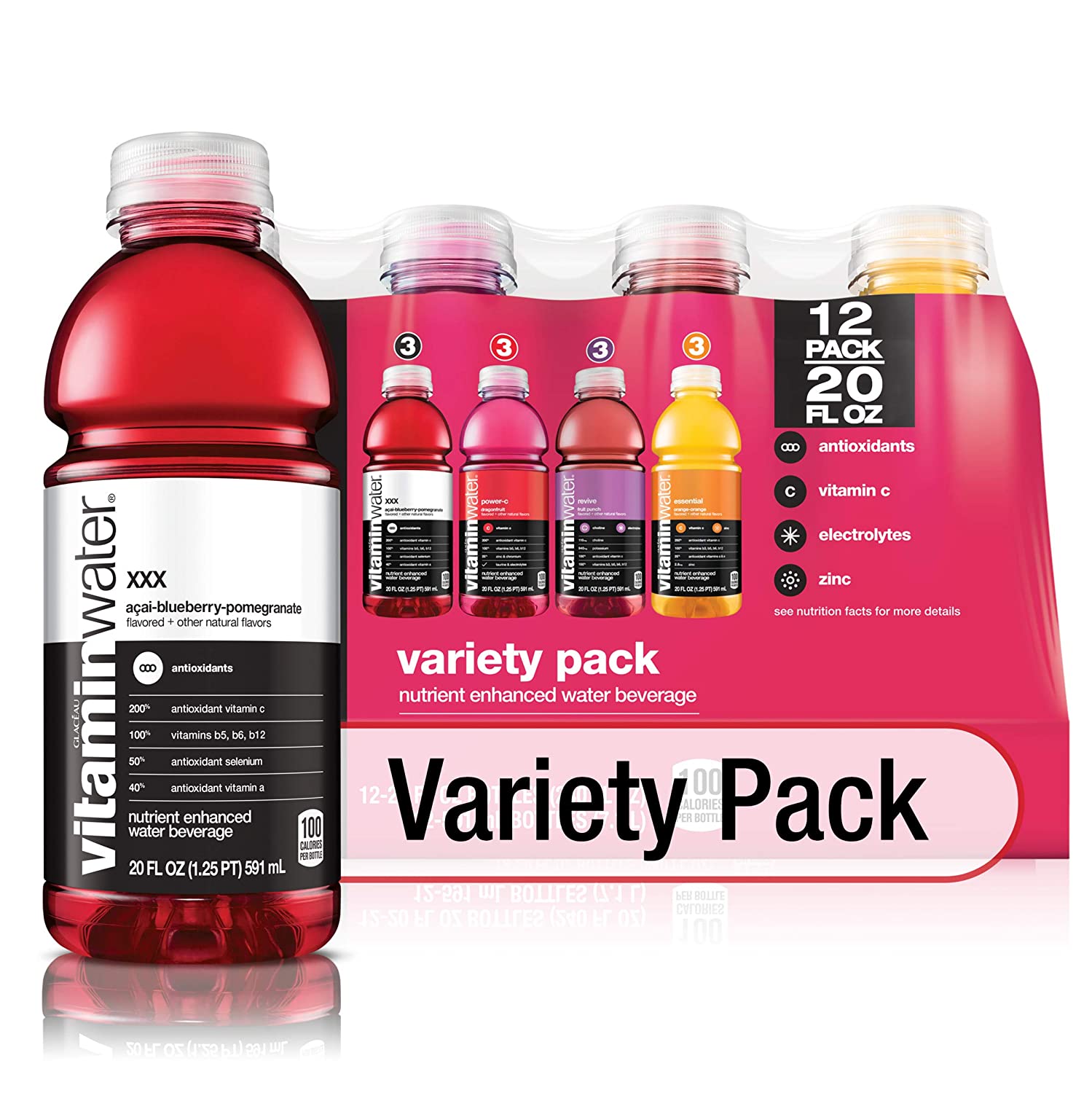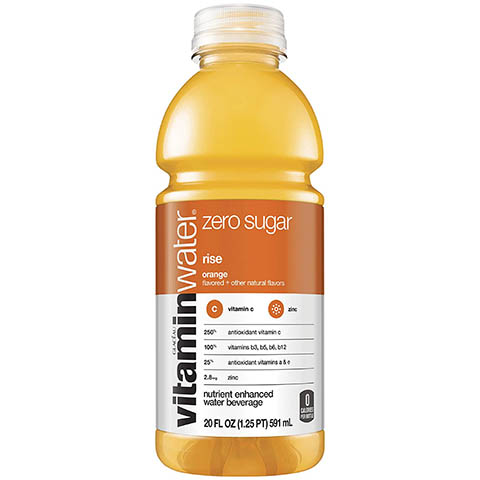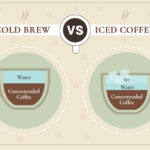
Vitaminwater is a tasty, hydrating drink loaded with vitamins and minerals to provide you with nutrition while you hydrate. Vitaminwater Energy adds caffeine to the mix and provides you with an extra energy boost. But how much caffeine are you getting? Is this really a healthy alternative to other energy drinks?
Vitaminwater Energy contains 50 mg of caffeine in every 591-mL (20 oz.) bottle. Let’s take a look at what this means!
How Much Caffeine Does Vitaminwater Energy Contain?
Vitaminwater Energy contains 50 mg of caffeine in each bottle. That’s about the same amount of caffeine contained in 1 cup of coffee. No other Vitaminwater products contain caffeine other than the Energy line.
The concern with consuming excessive amounts of Vitaminwater Energy isn’t with the caffeine content but the sugar content. A single bottle of Vitaminwater Energy contains 32 grams of sugar and 120 calories. This is about half the sugar content of a bottle of Coca-Cola. While it is marketed as a health drink, Vitaminwater can promote weight gain due to its high sugar content.
Vitaminwater Caffeine Comparison
Vitaminwater Energy can provide a quick energy boost due to its caffeine and sugar content. Let’s look at the caffeine content in Vitaminwater Energy compared to other popular energy drinks.
| Vitaminwater Energy: | 50 mg |
| 5-Hour Energy: | 200 mg |
| Coca-Cola Classic: | 34 mg |
| Coffee: | 163 mg |
| Diet Coke: | 46 mg |
| Diet Pepsi: | 35 mg |
| Dr. Pepper: | 42 mg |
| Espresso Shot: | 77 mg |
| Gatorade Bolt 24 Energize: | 75 mg |
| Monster Energy: | 160 mg |
| Mountain Dew: | 54 mg |
| Pepsi: | 38 mg |
| Perrier Energize: | 99 mg |
| Red Bull: | 80 mg |
| Rockstar Energy Drink: | 160 mg |
| Black Tea: | 42 mg |
How Much Is 50 mg of Caffeine?
50 mg is a relatively low caffeine amount compared to many other popular energy drinks. It’s comparable to the amount found in 1 cup of black tea or a soft drink. So, relatively speaking, 50 mg isn’t that much caffeine.
In the United States, the average daily caffeine consumption is approximately 300 mg per person. While this is three times the world average, it’s only half of the average amount consumed in countries like England or Turkey, which rank high for tea consumption.
As far as a “dose” of caffeine, the average normal dose is between 50 mg and 200 mg. Vitaminwater Energy fits within these dosing parameters.
Is Vitaminwater Energy Good for You?
Vitaminwater Energy should be considered just like any other sugary energy drink. It’s not bad for you when consumed occasionally and in moderation. However, it isn’t a replacement for water, as it contains sugar. Your body doesn’t compensate for the sugar calories that you consume in liquid form, so excessive consumption can lead to an overload in calorie consumption.
As far as its caffeine levels, Vitaminwater Energy provides a relatively low amount of caffeine that can be beneficial to provide you with a quick energy boost. As long as it isn’t consumed in volumes large enough to cause negative caffeine side effects, there is no reason that it should cause any health concerns.
Conclusion
Vitaminwater Energy contains approximately 50 mg of caffeine per bottle. This is a relatively low amount of caffeine compared to most other popular energy drinks. Since Vitaminwater contains a large amount of sugar, though, it’s important to consume it in moderation to avoid consuming too many calories. However, when used appropriately, it can provide you with an energy boost without causing adverse effects.
See Also: How Much Caffeine in Runa Clean Energy Drinks? What to Know!
Featured Image Credit: Glacéau vitaminwater by Coca Cola Enterprises Sverige AB, Wikimedia Commons CC 3.0 Unported
















